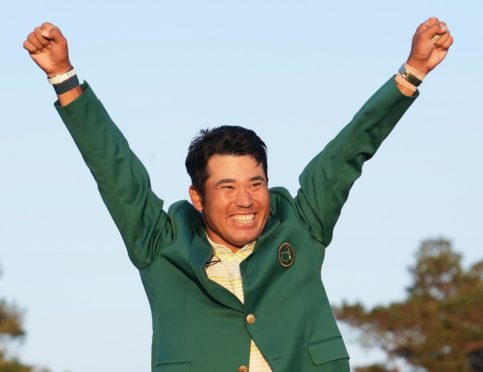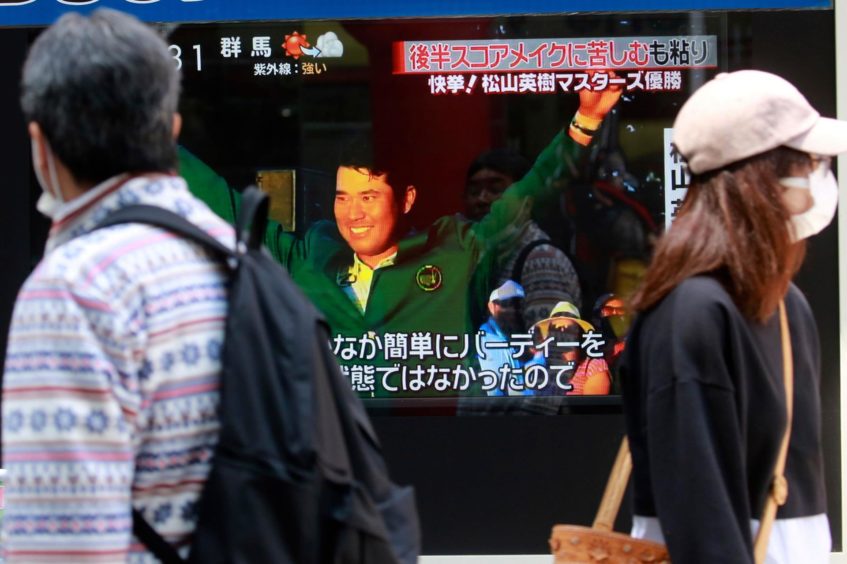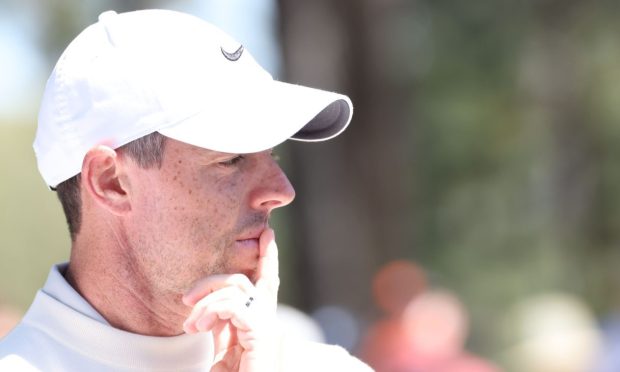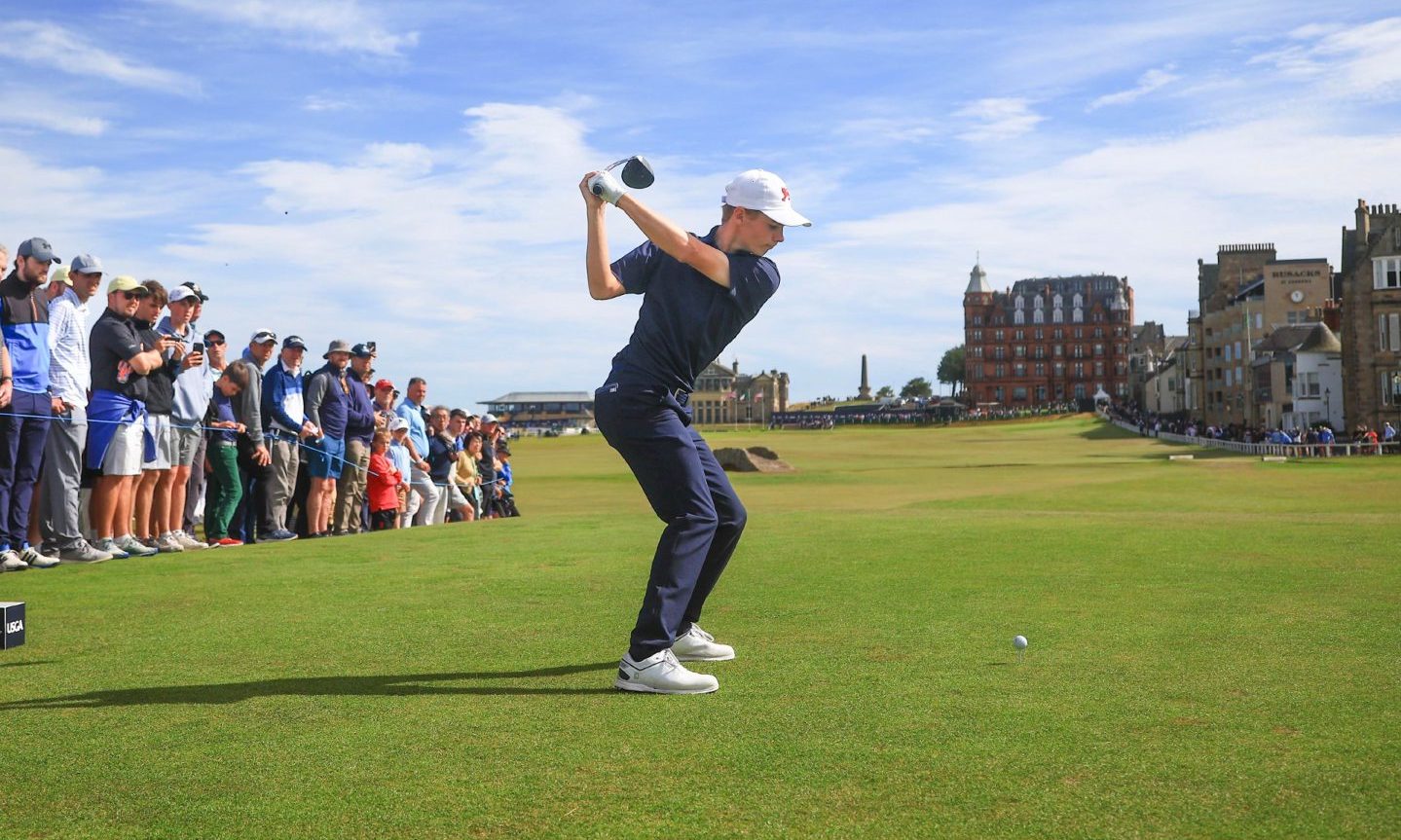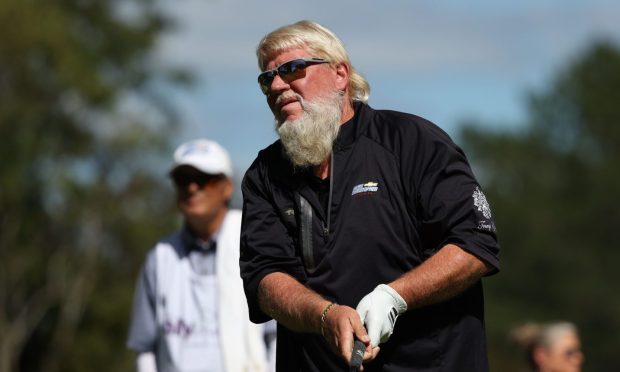Hideki Matsuyama for a long time seemed like just the next Japanese golf star who was going to look like a fish out of water outside his homeland.
Remember Ryo Ishikawa? He won a Japan PGA tour event as a 15-year-old amateur in 2007, then a succession of events after turning pro at 17, and was the youngest ever player to break the top 50 of the Official World Rankings.
He and Rory McIlroy were meant to be the rivalry for the 2010s and beyond. Ishikawa’s still playing at 29, but lost his way seeking to emulate the power of the players he saw when he went to the USA and Europe. He’s never won an event outside his native shores.
Matsuyama, bigger built and more powerful, has always been better suited to the modern game and won three PGA Tour events and two WGC events. But for the past four years he’s been struggling.
His referred to his discomfort with the obsessive attention of his native media several times at Augusta. Covid regulations meant that the usual legion of Japanese media was much reduced, and anyway at Augusta the media are corralled far more than at the other majors.
But he still definitely felt the weight of expectation. “I think I shredded everyone’s nerves, so I’ll try to win more emphatically next time,” he told the media.
The folks back home
Japan is still a fairly golf obsessive country. As you travel through the country and the urban sprawl of the cities on trains, you regularly see massive green nets rising among the buildings – driving ranges, sometimes four or five storeys high.
But participation in the sport has dropped in Japan just like everywhere else. NPR, the English language Japanese news agency, estimates that it fell 40% in the 20 years between 1996 and 2017.
The Women’s Open victory in August 2019 of Hinako Shibuno re-sparked a lot of interest. When I was in the country for the Rugby World Cup a month after she won at Woburn, it seemed every sports magazine had the “Smiling Cinderella” on the cover.
This despite it the tournament being played and Japan doing rather well, the annual baseball play-offs taking place and one of the major Sumo tournaments going on.
Matsuyama hopes his example will inspire more players to venture out from Japan. It’s also a timely boost with the Olympics taking place this summer – the golf event will now surely become a massive focus.
Bob’s excellent adventure
Debutant Masters honours went to Will Zalatoris, unquestionably. But on any other week they would have been Robert MacIntyre’s.
Tied for 12th and an invite bagged for next year already on a place he’d never seen until earlier in the week, it was a brilliant performance.
What was most notable was the way he dealt with several mini-crises throughout the four rounds. There were several times when a less assured player might have crumbled completely – the double at the sixth on Sunday a particular example.
See you next year at #themasters pic.twitter.com/XPOsa4gUSG
— Robert MacIntyre (@robert1lefty) April 12, 2021
What we found – again – is that Robert is made of robust stuff. He came back from four bogeys on the bunce on Thursday, back from two on the front nine on Friday, back from his six at 13 on Saturday. Even back at the last on 18th on Sunday, having just bogeyed 16 and 17.
Robert knows he can play in this company for sure, but really he knew that after the Open and his rookie year in 2019. He also knows now he has incredible resilience, and that’s going to be precious moving on.
Missed opportunities
One can hardly remember a major when so many big names seemed poised to strike…and just didn’t.
On Saturday and Sunday, those who had survived the opening day’s extreme toils and benefitted by Friday’s helpful rainstorm were in perfect position.
Jordan Spieth and Justin Thomas, supposedly the men with the biggest form and momentum coming in, were ideally placed. Xander Schauffele, a major contender since 2018 and thought to be nearing his time to break through, was also there. Marc Leishman, the consistent Aussie, was also contending.
None of them made a run. Thomas was frozen out by a snowman (and eight) at the 13th on Saturday. Spieth was always about, and bogeyed the last to fall into a share of third. Another podium finish at Augusta, and he played decently. But he was never within reaching distance of the lead on the weekend.
Schauffele, for me, was the big miss. Having gone bogey-bogey-double on the front nine, he should have been gone.
"I flushed it."
Xander Schauffele was more surprised than anyone that his final-round tee shot on No. 16 at Augusta found the water: https://t.co/oACnIDopGD
(📷: @benwalton_gd for Golf Digest) pic.twitter.com/SLPnB04gOh
— Golf Digest (@GolfDigest) April 12, 2021
But like he did at the Open at Carnoustie in 2018, Schauffele scrapped his way back. He birdied 12, 13, 14 and 15 just as Matsuyama was wavering.
Now just two back playing 16 and first to hit, he had the chance to heap pressure on Hideki. Even Tiger Woods has bogeyed the last two when leading at Augusta. Instead, Schauffele put it in the water and all tension for Matsuyama vanished. He could play the final three in two-over and still win.
Rose’s renaissance
Nice way to finish on the last! Pleased with the way my game is trending.
Congratulations Hideki on a fantastic @TheMasters win. A remarkable achievement for you and your country. Enjoy the celebrations 🇯🇵
Thank you #Team🌹 for all the messages of support. #themasters pic.twitter.com/UzQf5BZmPR
— Justin ROSE (@JustinRose99) April 12, 2021
Some had Justin Rose, who led for two and half rounds, down as another missed Augusta chance. It is, because he was in the hunt for so long. But really this Masters was a huge bonus for the Englishman.
Much like Rory McIlroy, he’s been piecing his game back together after some questionable decisions in the last three years. Even after his astonishing 65 on Thursday, Rose talked of being “not exactly brimming with confidence.”
He’s been in the game long enough to know that it was a huge outlier – not just for him, but for the scoring average of that day. Sure enough, although there were little sparks, he played two-over golf for the last 54 holes.
But with his recent re-connection with long-time coach Sean Foley and his old weaponry still a work in progress, what he did this week augurs well.
Rose turned 40 recently, and probably has a five-year window to bag at least second major. If I were him, I’d be massively encouraged.
